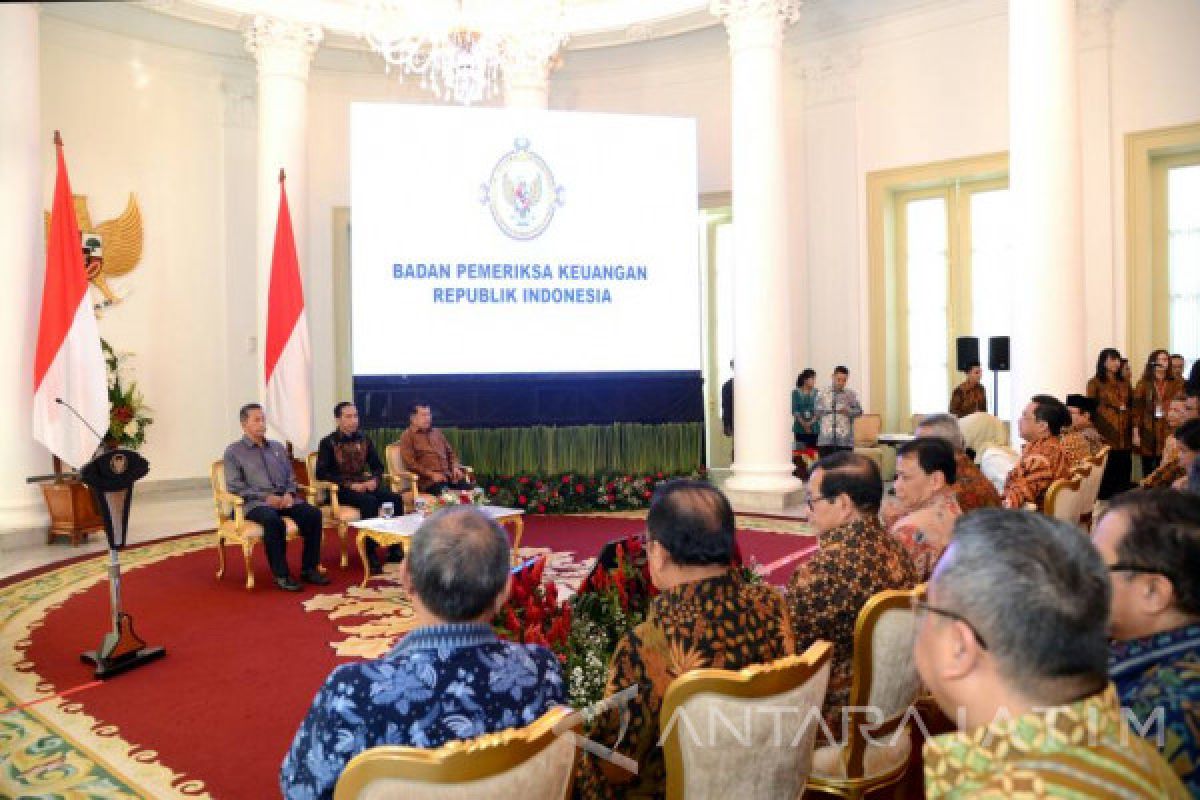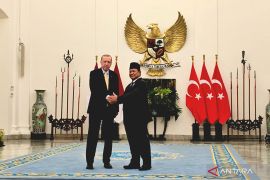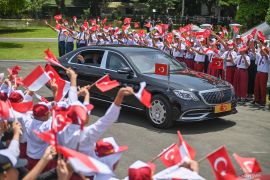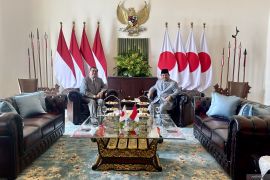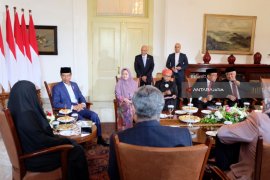Bogor, (Antara) - President Joko Widodo (Jokowi), at Bogor Palace here, Tuesday, invited some interfaith figures affiliated with the Indonesian forum of religious tolerance to hold a discussion on social harmony, unity, and solidarity in the country.
During the meeting, the president stated that religious leaders should actively engage in resolving disputes in society.
Jokowi, accompanied by Vice President Jusuf Kalla, State Secretary Pratikno, Cabinet Secretary Pramono Anung, Head of Presidential Staff Teten Masduki, and Presidential Special Staff Johan Budi, emphasized that interfaith figures should anticipate friction in the community and immediately attempt to solve the problems.
The president also noted that at times, some parties have incited religious conflicts for their political interests, so interfaith leaders need to educate the people to scrutinize every dispute arising in public.
Following his participation in the anti-terrorism forum during the Arab-Islamic-American Summit, held in Riyadh on May 21, the president cautioned that radicalism has become a major threat to most countries in the world.
"Two days earlier, I met some leaders from Islamic countries as well as US President Donald Trump, and we agreed that terrorism and radicalism have been the world's greatest challenges that have yet to be tackled," Jokowi remarked.
At the Sunday summit in Riyadh, Jokowi called on Muslims across the world to unite in the fight against radicalism and terrorism.
While addressing over 50 leaders of Muslim nations, Jokowi expressed hope that everyone would be able to contribute to combating extremism.
"I wish that each and everyone of us will be bold enough to become part of the solution and not part of the problem in the efforts to eradicate terrorism. We must all partake in realizing global peace," Jokowi reiterated while adding that both soft and hard power approaches need to be applied for eradicating terrorism.
He remarked that in future, the deradicalization program should involve not only members of the military and intelligence but also religious leaders, civil institutions, social organizations, as well as family members.
Jokowi also highlighted the role of Indonesia's two major Islamic organizations -- Muhammadiyah and Nadhlatul Ulama -- that are committed to campaigning for tolerance and peace among believers.(*)


